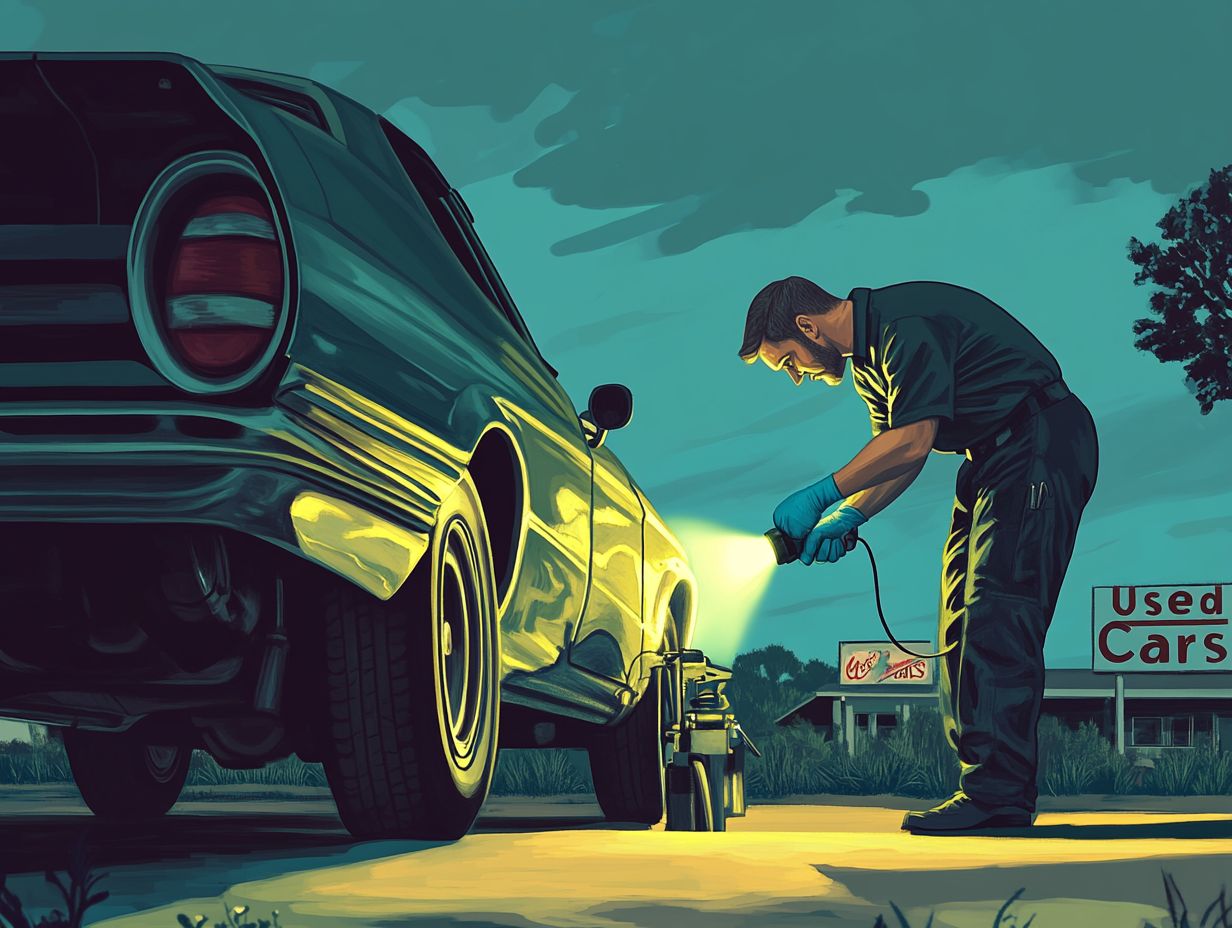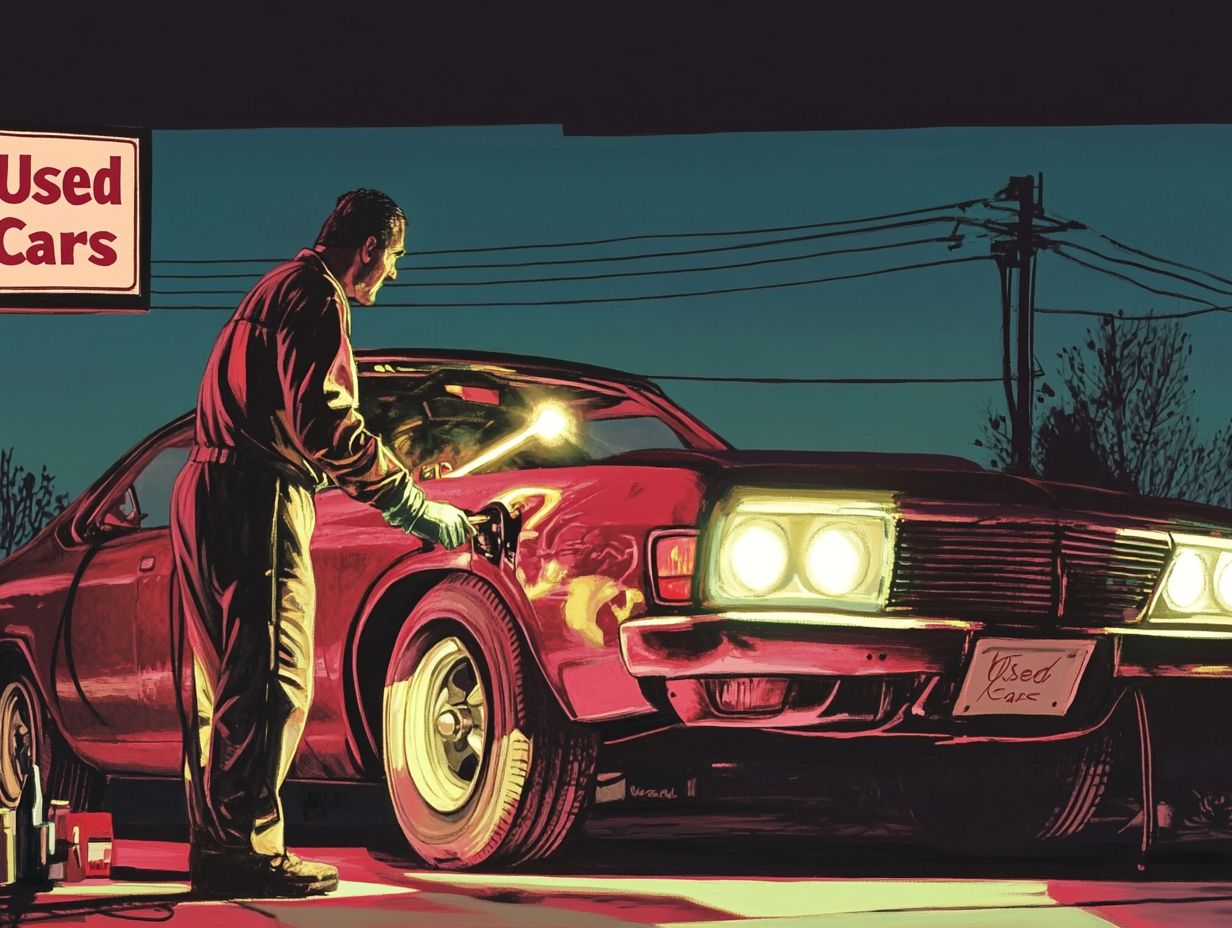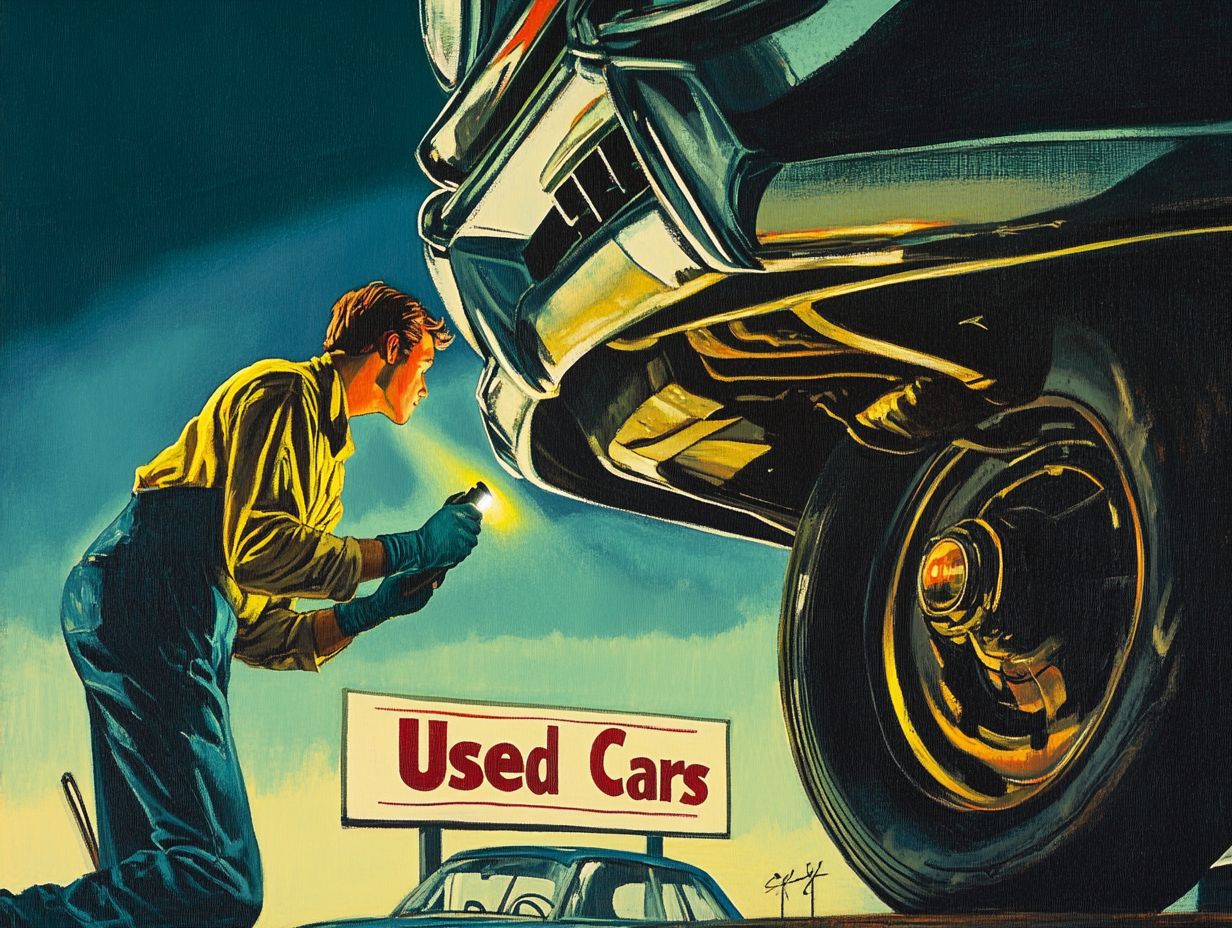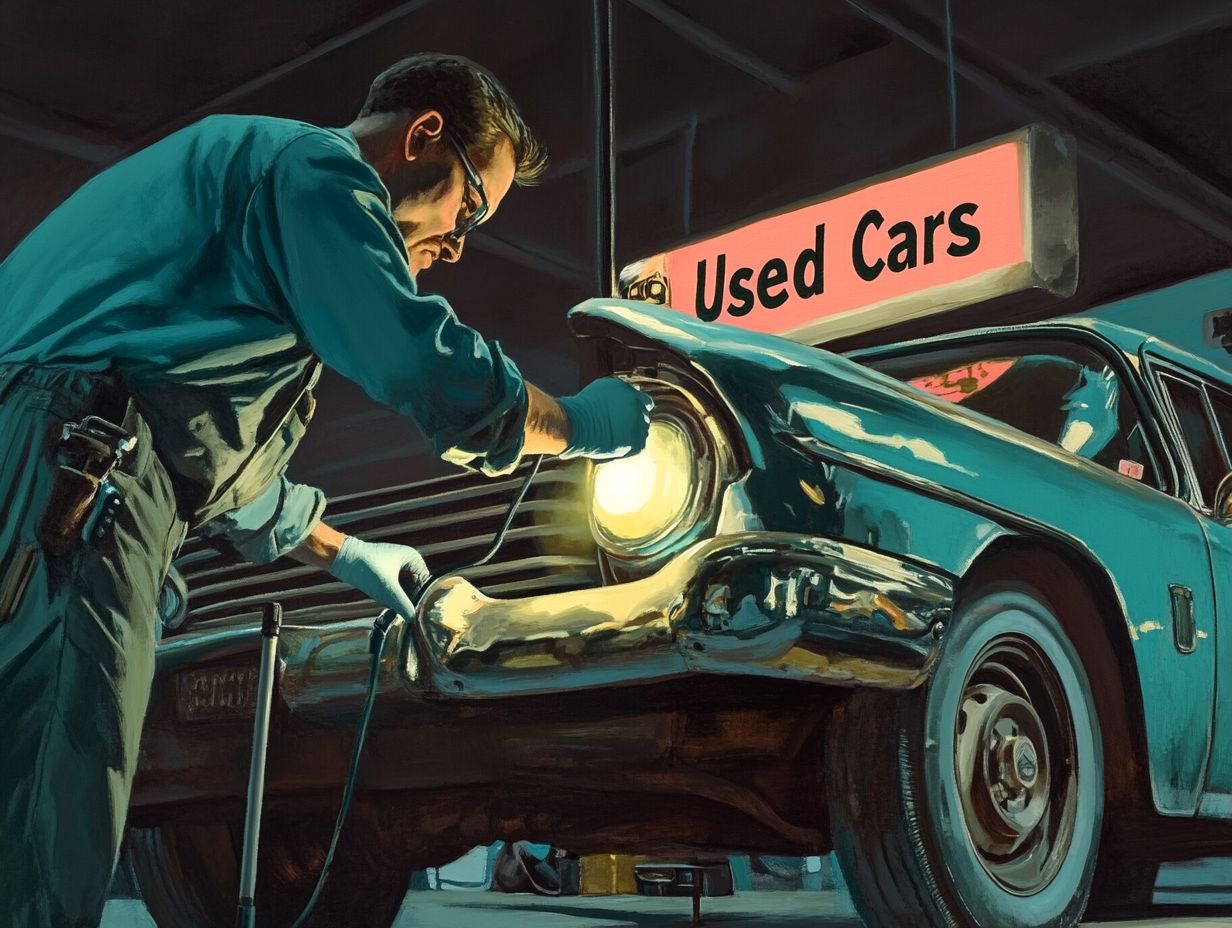When You Buy a Used Car From a Dealer, Can a Mechanic Look it Over?
Buying a used car can be both exciting and a bit nerve-wracking, right? The temptation of snagging a great deal is hard to resist, but making sure that your potential new ride is safe and reliable is absolutely crucial.
In this article, I’ll dive into the significant benefits of having a mechanic check out the vehicle before you seal the deal. I’ll share some tips on how to find a trustworthy mechanic, what to expect during the inspection process, and how to use what you find to your advantage when negotiating.
Plus, I’ll touch on some important things to consider when dealing with dealerships—think warranties and return policies—so you can make a well-informed decision.
Benefits of Having a Mechanic Inspect a Used Car

When I’m thinking about buying a used car, I can’t stress enough how valuable it is to have a mechanic take a look at it. Getting that inspection done is a game changer.
It helps me make sure the car is in good shape and can reveal any hidden problems that might lead to expensive repairs later on. That pre-purchase inspection gives me peace of mind, saves me money, and really improves my overall buying experience.
Ensuring Safety and Reliability
Ensuring safety and reliability is super important for me when I’m buying a used car, and that’s why I always go for a thorough mechanic inspection.
A certified mechanic runs a bunch of safety checks to evaluate key components like the brakes, tires, and engine performance. These checks are vital not just for spotting worn-out parts but also for uncovering any potential mechanical issues that could mess with the car’s reliability down the road. By catching problems early, I can make smarter choices and avoid those pesky, costly repairs later on.
Understanding the car’s condition through this careful process gives me confidence that I’m making a solid investment and adds a nice layer of peace of mind before sealing the deal.
How to Find a Trustworthy Mechanic
Finding a trustworthy mechanic for my used car inspection really makes a difference in the buying process. It’s all about ensuring safety and reliability, and having someone I can count on gives me peace of mind.
Researching and Asking for Recommendations
When I’m on the hunt for a trustworthy mechanic, I always start by doing some research and asking around for recommendations. It really helps to find someone who knows the ins and outs of used cars.
I find that online reviews and community feedback are super important in this search. They give me a glimpse into the reliability and expertise of different mechanics. It’s like having a treasure trove of information at my fingertips! By browsing platforms where others share their experiences, I can make informed decisions based on what previous customers have said.
For example, I might stumble upon a highly-rated mechanic who specializes in my specific car model, which definitely boosts my confidence in their ability to do a thorough inspection. I also like to get recommendations from friends, family, or even dedicated online forums. This often leads me to professionals who have built a solid reputation through positive testimonials and happy clients.
The Inspection Process

I’ve learned that understanding the inspection process is super important when buying a used car. Getting a pre-purchase inspection can really uncover key details that impact the vehicle’s value and safety.
What a Mechanic Will Look For
During a mechanic inspection, there are a few critical things I know the mechanic will check to make sure the used car is in good shape.
First up, they’ll give the engine a thorough once-over, checking its performance and overall health. They’re looking to see if it runs smoothly without any weird noises or leaks. Then there’s the transmission, which is super important because it affects how quickly and efficiently the car shifts. If the transmission is off, it could mean some serious repair bills down the line.
Brakes are another biggie. Safe brake performance is crucial for keeping the car stable and safe to drive. All of these factors really play a vital role in the car’s overall condition and reliability.
If the mechanic provides a detailed inspection report, that can be a game changer for potential buyers during price negotiations. It helps them make informed decisions based on honest evaluations.
Negotiating Based on Inspection Results
Negotiating based on inspection results can really change the game when it comes to the final price of a used car, especially if I uncover any hidden issues during the process.
Using Findings to Negotiate a Better Deal
Using the findings from a mechanic inspection can really be my secret weapon when it comes to negotiating a better deal on a used car.
If I can pinpoint specific mechanical issues or call out poor maintenance records, I can use that info to potentially lower the asking price. For example, if the inspection shows I’ve got worn-out brakes or an engine that needs some TLC, that not only backs up my plea for a lower offer but also shows I’m a savvy buyer.
Getting to know the market value and trade-in potential of the car really boosts my confidence in making informed arguments. This knowledge gives me the power to explain to the seller why they should seriously consider my offer, ultimately leading to a better deal that keeps my wallet happy.
Other Considerations When Buying a Used Car from a Dealer

When I’m buying a used car from a dealer, there are a few key things I like to keep in mind to make sure I have a good experience.
Warranties and Return Policies
Warranties and return policies are super important to think about when I’m buying a used car from a dealer. They really help reassure me about my investment.
There’s a whole range of warranties out there, from limited powertrain coverage to more comprehensive plans that cover just about everything in the vehicle. Usually, the limited warranties take care of the big-ticket items like the engine and transmission, while the more extensive options might throw in things like electrical systems, air conditioning, and even roadside assistance—pretty handy, right?
When I’m checking out return policies, I always make sure I understand how long I have to make a return and what conditions I need to meet. Dealers are supposed to be upfront about these policies, and they should stick to them if I’m not happy with my purchase.
This part of customer service really matters. A dealer who is responsive and supportive not only helps to build trust but also makes the whole buying experience way smoother and more enjoyable for me.
Frequently Asked Questions
Can a mechanic look over a used car before I buy it from a dealer?
Yes, it is recommended to have a mechanic inspect a used car before purchasing it from a dealer. This can help identify any potential issues and ensure you are making a sound investment.
Is it necessary to have a mechanic inspect a used car from a dealer?

While it is not required, having a mechanic look over a used car from a dealer can provide peace of mind and potentially save you from costly repairs in the future.
Can I bring my own mechanic to inspect a used car at a dealership?
Typically, yes. It is best to check with the dealership beforehand to make sure they allow this and to schedule a time for the inspection.
Do I have to pay for a mechanic to look over a used car at a dealership?
Yes, you will most likely have to pay for the mechanic’s time and services. However, this cost can potentially save you from purchasing a car with hidden issues.
What should a mechanic look for when inspecting a used car from a dealership?
A mechanic should check the overall condition of the car, including the engine, transmission, brakes, tires, and any potential signs of damage or wear. They should also inspect for any potential hidden issues such as previous accidents or flood damage.
Can a mechanic negotiate the price of a used car at a dealership?
Technically, no. A mechanic’s job is to provide an objective assessment of the car’s condition. However, if they identify any significant issues, you can use this information to negotiate a lower price with the dealer.
